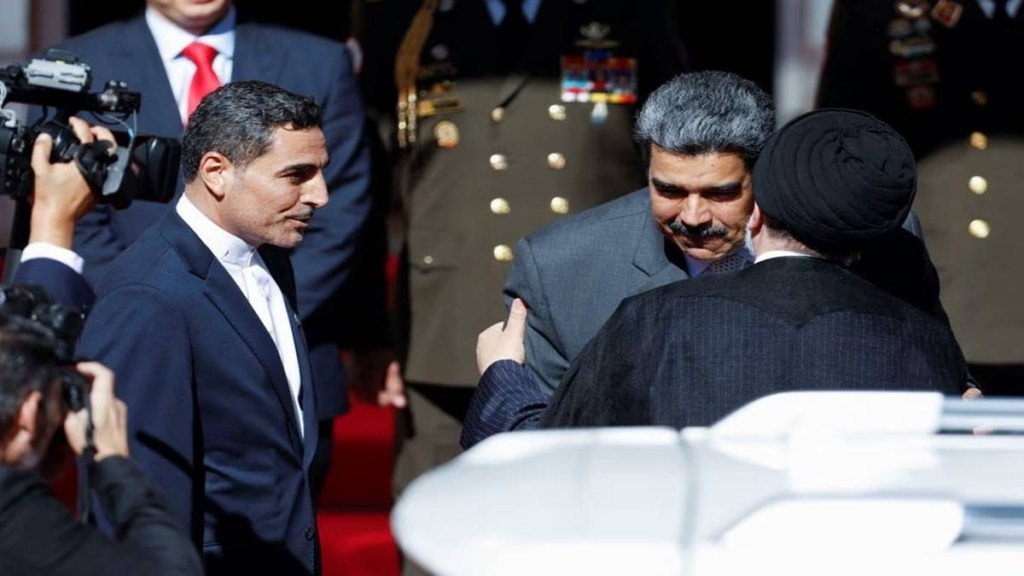By Dr Aparaajita Pandey
A seemingly new linkage between middle – east and Latin America is emerging, and it might seem quite unnatural and out of the blue. However, if someone was to take a closer look one would realise that there have been historic connections between the two regions mainly in the context of Diaspora. As the world’s politics has evolved, these relationships found common ground in other areas too. One of the biggest areas of commonality has been their complicated relationship with the United States of America and the continuous tussle that there has been for energy and ideology that the Middle East or West Asia and Latin America have with the US.
In the recent past the regions of the Middle East and Latin America have come closer and started to explore deeper relations. While this is an important pattern to observe, it is not completely organic; this beginning of interest has been facilitated by China. A manifestation of this facilitation we have seen countries of the Middle East become more open to negotiating and collaborating not only with other countries of other regions but also with each other, essentially altering political fault lines within the region of Middle East.
It is also important to note that a common thread between these regions is that a majority of the countries in the region are oil producing nations. Although there is a difference between the kind of crude oil that is found in the two regions, both of these regions possess the largest crude oil reserves in the world; at the moment Latin America more than the middle – east. However, the political stability in the middle – east and the support that some nations of the region have traditionally received from the US has assisted in making the oil economies of the Middle East more robust.
Since 2021 Iran has been helping Venezuela with technological equipment to resuscitate the dying refineries of Venezuela. Venezuela possesses heavy Maya – Crude which requires special technological know – how to refine. Iran has been helping Venezuela with their refineries. Iran had warm relations with Venezuela under Hugo Chavez and the same legacy was carried forward when Maduro took over the country in 2013.
While Maduro has become increasingly autocratic since 2015, he has also been increasingly perceived as a problem by the US. While the US has attempted to replace him with Juan Guido who was never able to gain any momentum in the region.
Iran has also been attempting to find strategic footholds in the Latin American region. Iran has been looking to Cuba, Nicaragua, and Venezuela for possible collaborations. Tehran worked intensively with Cuba during the COVID – 19 pandemic and signed no less than 13 agreements. Iran is also working closely with Nicaragua in addition to Venezuela. From the US’ perspective, the three countries working together with Iran and being abated by China is quite reminiscent of the proverbial Troika of Tyranny and it is understandable that the US must be feeling a sufficient amount of unease about this growing relationship.
While Iran has made it clear that the harsh step- child treatment by the US and the sanctions that have made these countries suffer greatly has become the bedrock of such collaborations as we move towards a multi-polar world. It is important to note that President Maduro also visited Mohammad Bin Salman in Saudi Arabia right before the visit of the Iranian Head of State Raisi to Venezuela, Cuba, and Nicaragua. There is also a need to look at China and the role it has played in collaboration between Iran and Saudi Arabia. The heightened collaboration between Saudi Arabia and Iran would also help Venezuela expand its ties with both the nations.
The greater significance of this collaboration will be more apparent in the coming months, and it would also prove extremely important for Venezuela if Venezuela with Iranian support could reinvigorate its refining capabilities and get some semblance of stability in the economy. A stabilizing Venezuela would be a positive sign for the entire region.
The Chinese also stand to gain more support for their stance for Taiwan from the Latin America region which has been growing in the recent past. The inroads that China has made in the region also corroborates with their stance in Latin America and it is not too far-fetched to believe that this relationship will only grow stronger in the coming years.
The author has a PhD in Latin American Studies, from Jawaharlal Nehru University.
Disclaimer: Views expressed are personal and do not reflect the official position or policy of Financial Express Online. Reproducing this content without permission is prohibited.

